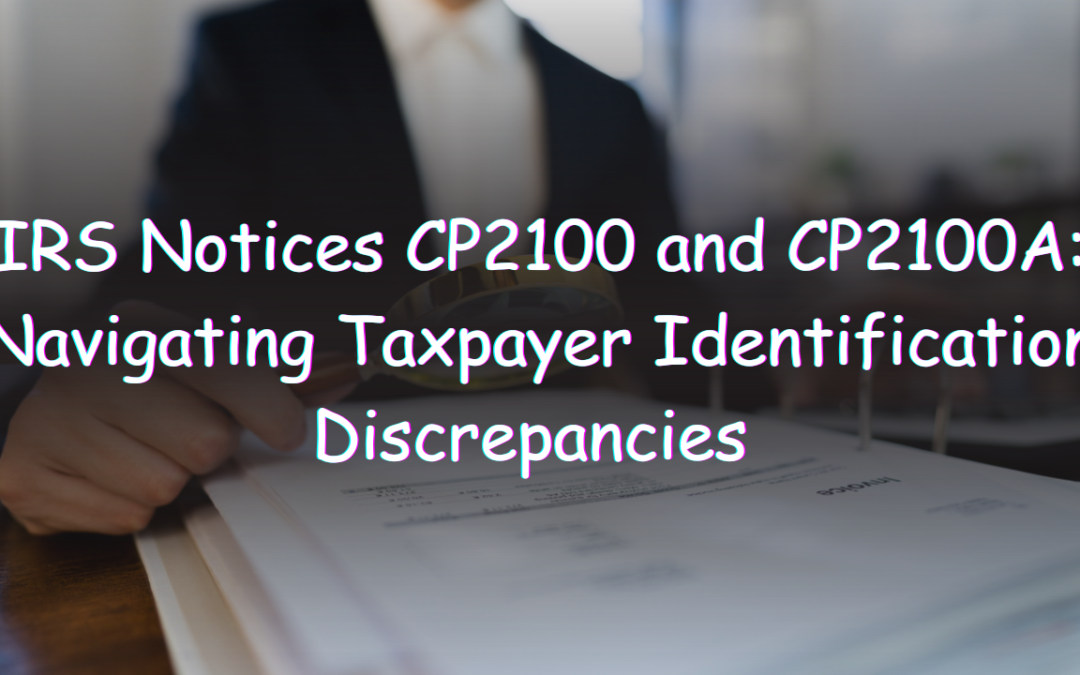When banks, credit unions, businesses, and various other payers file information returns with discrepancies that do not align with IRS records, a series of notices are issued by the Internal Revenue Service (IRS). These notices, known as CP2100 and CP2100A, serve as an alert to payers, highlighting issues such as missing or incorrect Taxpayer Identification Numbers (TINs), names, or other relevant details on the information returns they have submitted. Today I’m going to explain the key aspects of these notices, the implications they carry for both payers and payees, and the forms that are most commonly associated with errors.
CP2100 and CP2100A notices are integral components of the IRS’s efforts to maintain the integrity of the tax system. They are distributed by the IRS twice a year, in September and October, and then again in April. These notices play a crucial role in addressing discrepancies and ensuring that information returns are accurate and compliant.
The IRS predominantly sends CP2100 and CP2100A notices for discrepancies identified on specific forms. These forms represent a wide range of financial transactions and payments. The most common information returns that may contain incorrect information include:
- Form 1099-B, Proceeds from Broker and Barter Exchange Transactions
- Form 1099-DIV, Dividends and Distributions
- Form 1099-G, Certain Government Payments
- Form 1099-INT, Interest Income
- Form 1099-K, Payment Card and Third-Party Network Transactions
- Form 1099-MISC, Miscellaneous Information
- Form 1099-NEC, Nonemployee Compensation
- Form 1099-OID, Original Issue Discount
- Form 1099-PATR, Taxable Distributions Received from Cooperatives
- Form W-2G, Certain Gambling Winnings
These forms encompass a wide spectrum of financial dealings, from stock transactions to gambling winnings, and are instrumental in the IRS’s assessment of an individual’s or entity’s tax liability. A critical aspect of the CP2100 and CP2100A notices is the issue of backup withholding. Payers are notified that they may be required to initiate backup withholding on tax payments. This is especially relevant when the payee has failed to provide their TIN to the payer in the prescribed manner or has not certified that they are not subject to backup withholding for underreported interest and dividends. If the IRS communicates to the payer that the payee has provided an incorrect TIN or has not complied with it.
